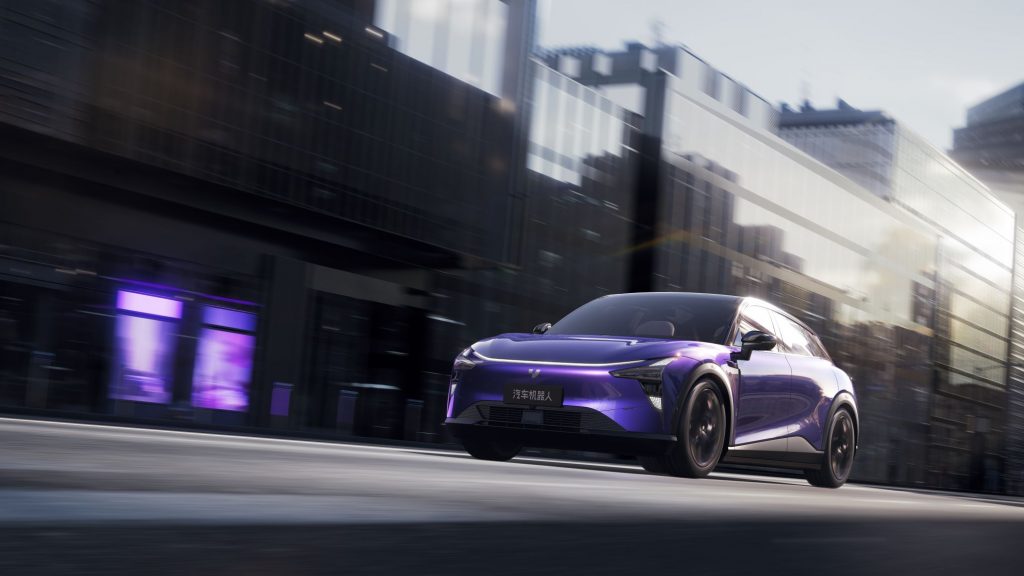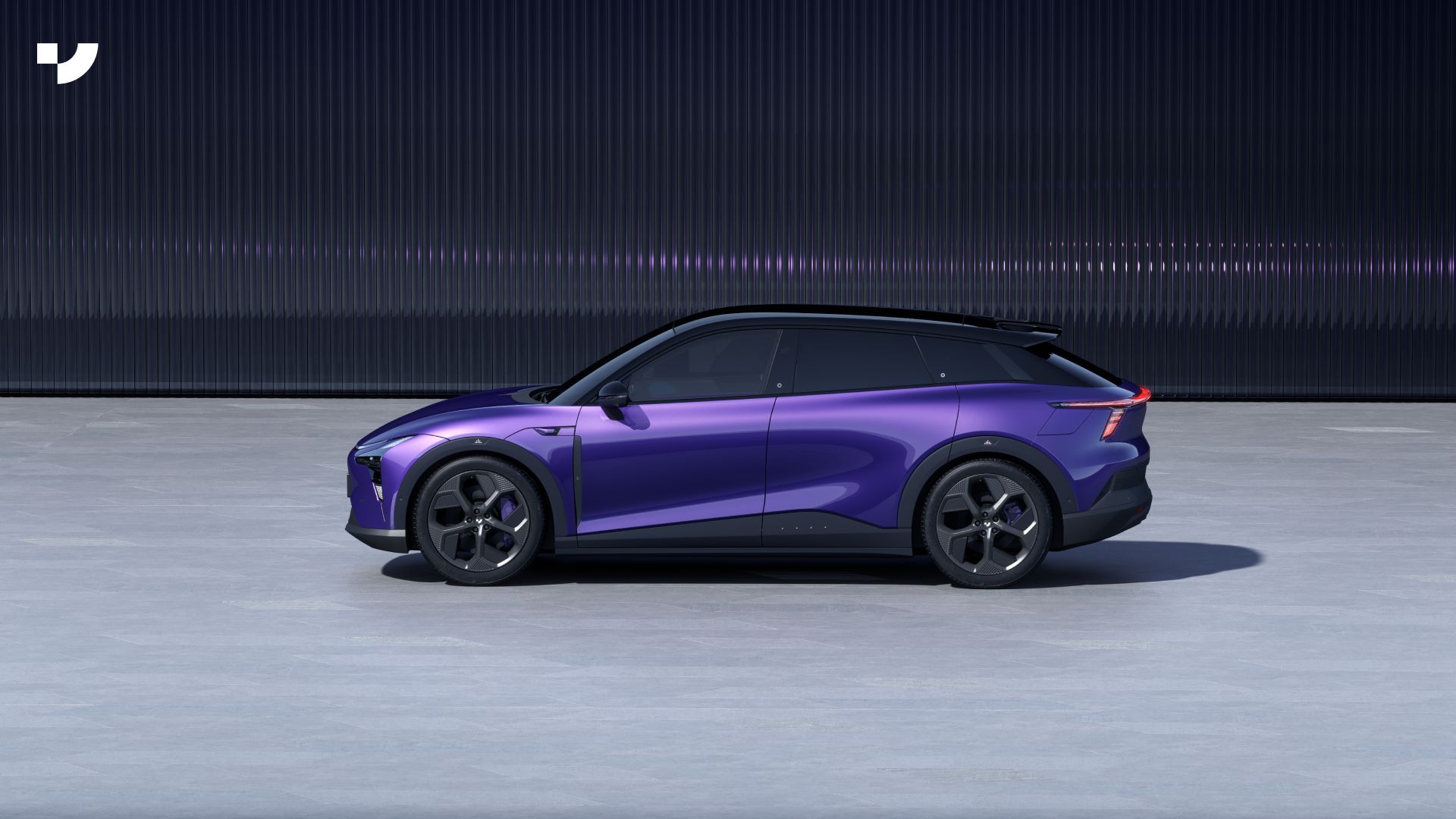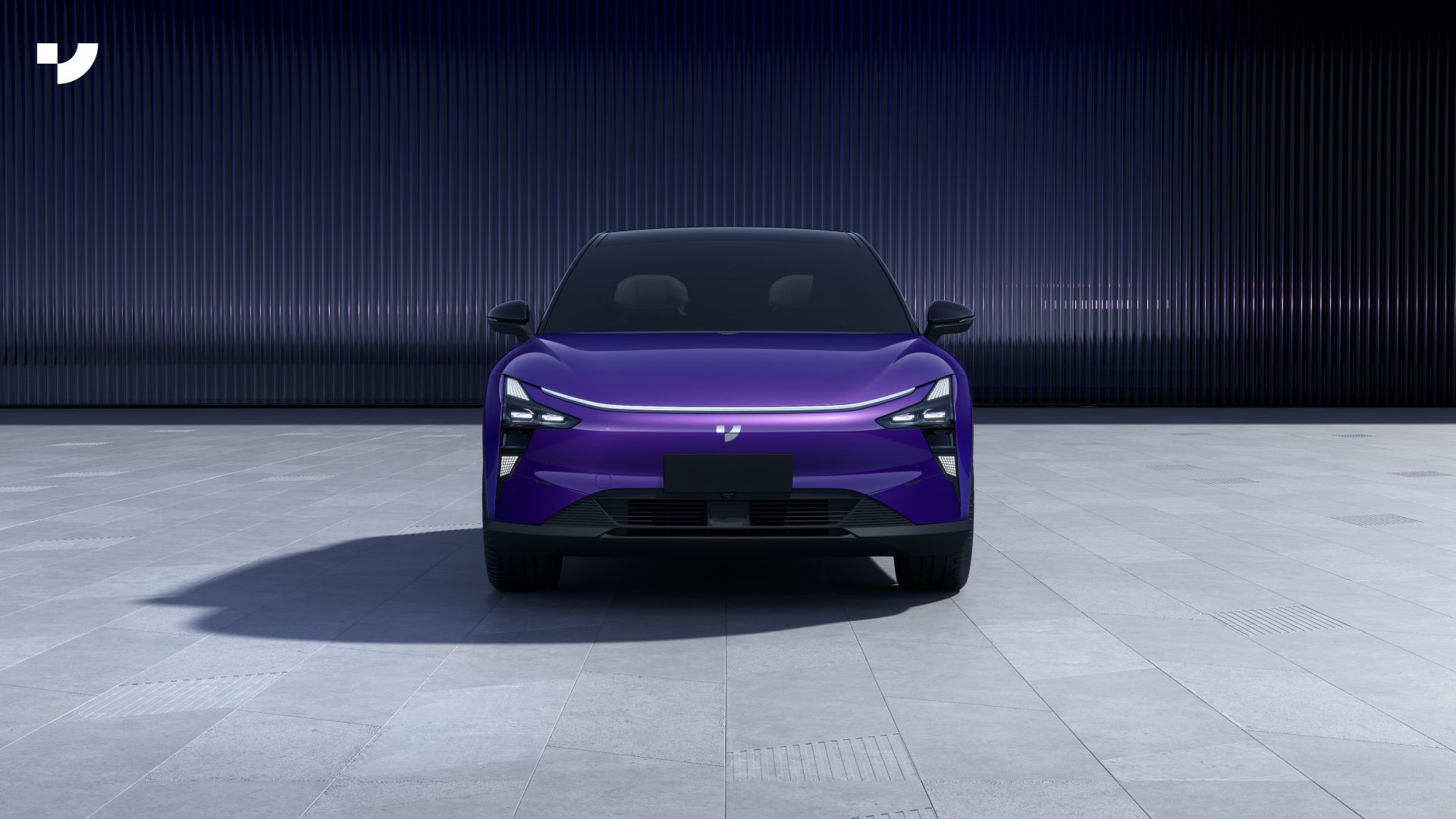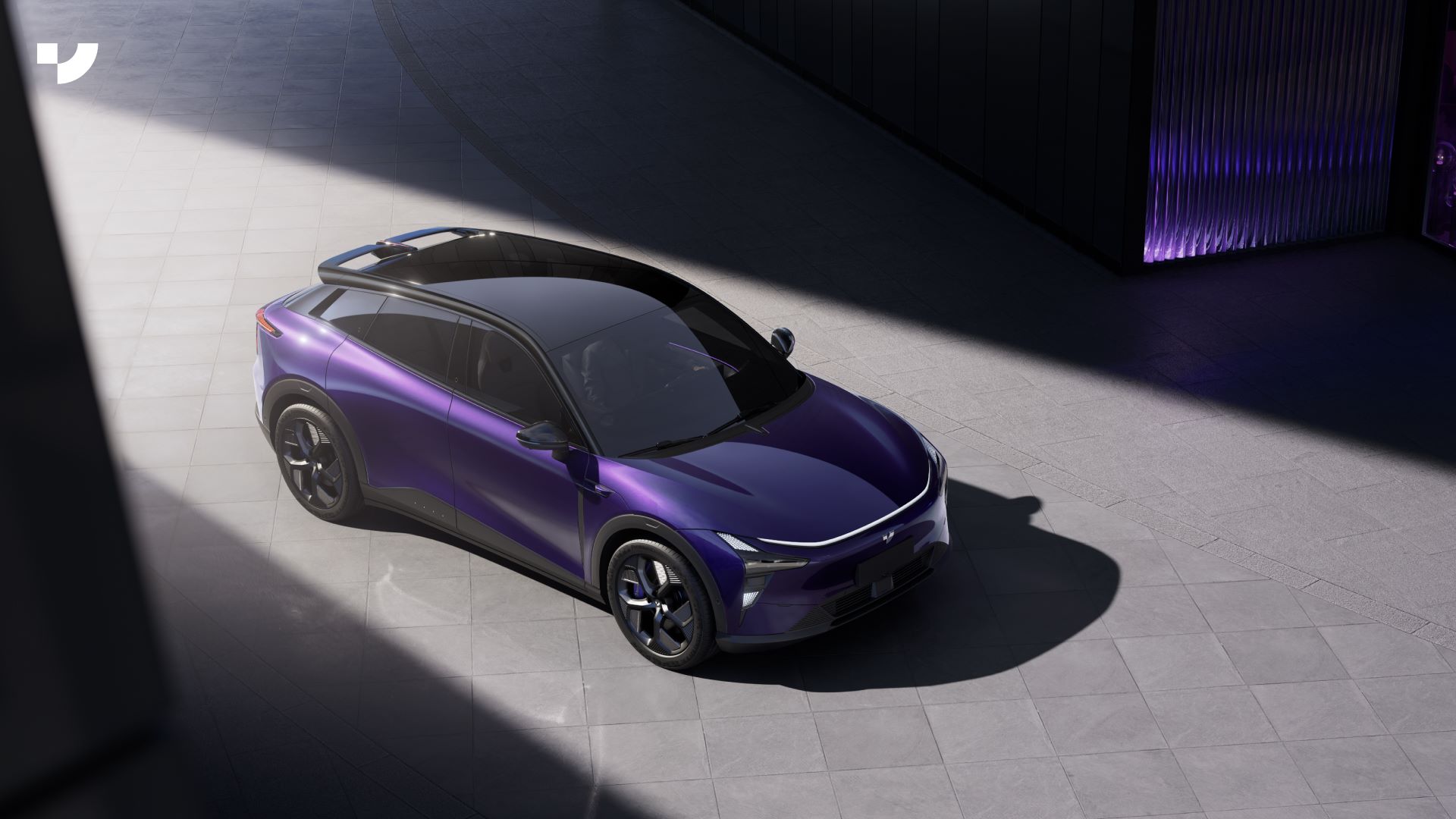
At the Auto Guangzhou 2023 show this week, Zhejiang Geely Holding Group, China’s largest privately held automotive group, and Baidu, the Chinese Internet search engine and AI (artificial intelligence) powerhouse, displayed the flagship vehicle and first AI-powered electric “robocar” from their joint-venture automotive brand. It is the first public outing since the late October launch event in Shanghai, China, of the JiYue 01—the world’s first consumer passenger vehicle powered by the Baidu Apollo full suite of SAE Level 4 autonomous driving solutions and is based on Geely’s SEA (Sustainable Experience Architecture).
The vehicle’s intelligent functions are supported by the industry’s most advanced AI chips from U.S. companies. Its autonomous driving functions are powered by Nvidia’s Drive Orin processor and a vision-centric architecture that uses 11 high-definition cameras, 12 ultrasonic sensors, and 5 millimeter-wave radars. The SUV is the first mass-production model to use the Qualcomm Snapdragon 8295 vehicle cockpit chip.
JiYue 01 users can subscribe monthly to Robo Drive Max to access the system’s continuously evolving intelligent drive functions. The service initially offers PPA (point-to-point navigation assistance) and AVP (autonomous valet parking) functionality on 90% of China’s highways and initially in three cities—Hangzhou, Beijing, and Shanghai—with plans on expanding to more than 200 cities in 2024.
The Robo Drive Max is capable of autonomous lane changing and overtaking, highway on- and off-ramp maneuvering, multi-lane obstacle avoidance, identifying zebra crossing and traffic lights, making unprotected left turns, giving way to pedestrians, and avoiding non-motorized vehicles. This adds to the standard suite of Robo Drive intelligent driving functions such as lane keeping, autonomous parking assist, collision warning, lane departure warning, intelligent cruise control, lane changing, and parking spot finding.
The JiYue 01 is said to be the world’s first model to support voice-activated/-controlled parking while outside the vehicle. Users can command it to use its autonomous valet function to park itself or pick up users in indoor or outdoor parking lots from up to 2 km (1.2 mi) away.
Inside the SUV, most physical buttons are removed, with users encouraged to control vehicle functionality through the Baidu-developed intelligent AI “partner” called Simo backed by its integrated AI system called Ernie Bot. Simo continues to grow and develop logical reasoning and strategic planning capabilities.
The system, which the company considers a leading solution in the industry, is capable of the most “natural” vocal communication with its users and management of almost all vehicle functions. It can execute commands and give directions or even general advice.



Simo’s speech-recognition speed is as fast as 500 ms and covers complex scenarios in and out of the vehicle, four-way simultaneous conversations, and continued conversations. Its AI system integrates multi-modal interactions including voice, gestures, and visual cues to enhance user personalization.
JiYue emphasized the safety and security of users in development.
Data security is a priority for the company, so the 01 adopts a unique end-to-end encryption system. Other than the user, no one—including JiYue—can access encrypted vehicle data, ensuring the protection of their personal data and driving record.
The user’s physical safety is backed by Geely’s Sustainable Experience Architecture, which is said to offer world-leading 5-star safety through a combination of ultra-high strength steel, high-strength aluminum alloy, and other materials to deflect and absorb collision energy and achieve a body torsional stiffness said to far exceed industry standards.
The JiYue 01 comes with an independent and redundant power supply for its electrically powered doors, a first in mass-production vehicles. The handleless induction doors come with four standard millimeter-wave radars to accurately detect obstacles outside the doors to prevent collisions and door opening.
The SUV measures 4853 mm (191.1 in) long, 1990 mm (78.3 in) wide, and 1611 mm (63.4 in) tall on a 3000-mm (118.1-in) wheelbase, offers a 0.249 aero drag coefficient, and a claimed most interior space in its class.
It is offered in single- or dual-motors, with each e-motor producing 200 kW. The Max Performance version with dual motors and intelligent drive can operate in two- or four-wheel drive mode and can use up to 400 kW for 0-100 km/h (0-62 mph) acceleration in 3.8 s. Two battery options of 71.4 and 100 kW·h provide 550 and 720 km (342 and 447 mi) CLTC electric range, respectively. With high-speed charging, the vehicle can be charged from 10% to 80% in under 30 min.

